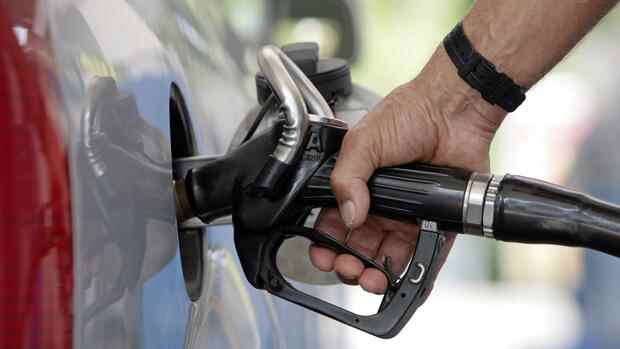Berlin The high cost of petrol is fueling the debate about countermeasures. The Federal Vice-President of the Christian Democratic Workforce (CDA), Dennis Radtke (CDU), calls for the rising prices to be offset by an increase in the commuter allowance and a temporary reduction in VAT. The FDP sees the new government’s turn, the SPD has clearly criticized the CDU initiative. Even the economist Clemens Fuest thinks little of the CDU proposal.
“Politicians cannot stand idly by as the rising prices are squeezing more and more people financially,” said Radtke to the Handelsblatt. Many people, especially in rural areas, are dependent on their cars to get to work in the metropolises. “It would therefore be right to take concrete countermeasures here with a short-term increase in the commuter allowance and a temporary reduction in VAT,” warned the North Rhine-Westphalian MEP.
The head of the SPD workers’ wing, Klaus Barthel, believes that low and middle income earners need to compensate for rising energy prices. The CDU proposals are “dishonest, because the Union on the one hand refuses to tax high incomes and assets appropriately, and on the other hand declared the debt brake a taboo,” said Barthel the Handelsblatt. “That would make any financing impossible.”
Barthel is also in favor of a VAT cut. Such a new subsidy for energy consumption would not relieve the burden on ordinary people, but on “large-scale consumers with swimming pools, private planes and SUVs”. The SPD politician calls for a reform of the commuter allowance. It must be rebuilt in such a way that it benefits all income earners equally.
Top jobs of the day
Find the best jobs now and
be notified by email.
Travel costs between home and work can be deducted from tax using the commuter lump sum. At present, working people can deduct 30 cents per working day for every kilometer to the place of work.
ADAC: Fuel prices for diesel cars in October more expensive than ever
It does not matter whether the route is covered on foot, by bike, by car or by public transport. From the 21st kilometer it has been 35 cents since this year. The federal government had already decided on this increase to compensate for rising CO2 costs.
The CO2 price has been in effect since this year and is 25 euros per ton, which is seven to eight cents in relation to the fuel price. The price is to rise slowly to 55 euros by 2025 and thus avoid “excessive financial burdens” according to the government.
According to ADAC, refueling in October was more expensive than ever for diesel car drivers. A liter of diesel then cost an average of 1.533 euros per month, 0.9 cents more than in the previous record month, September 2012. Compared to the previous month, the diesel price jumped 12.2 cents and compared to January 2021 by exactly 30 cents.
Petrol also rose significantly in price: the price for a liter of Super E10 was 1.651 euros in October, 8.2 cents above the September price. At the same time, the price of petrol has reached a new high for the year. Just like diesel, the E10 has gained 30 cents compared to January 2021, but the gasoline price is still two cents away from the all-time high of September 2012.
Ifo boss: Need for action, for example with Hartz IV recipients
The FDP also sees an urgent need for action in view of the development. The gasoline price is currently rising because of the high global oil price, but the real price driver is the state, said transport politician Daniela Kluckert to the Handelsblatt. 64 percent of the fuel bill consists of taxes and duties. “And if that continues, the next CO2 tax increase of six cents, decided by the grand coalition, is due in January,” warned the MP.
“Ending this spiral is a direct task of the coming federal government,” emphasized Kluckert. Especially since most people in Germany are dependent on the use of their car.
The President of the Munich Ifo Institute, Clemens Fuest, however, rejects an increase in the commuter allowance. “There is a need for political action if vulnerable groups are overwhelmed by the rising prices, for example Hartz IV recipients. You should be given targeted help, ”said Fuest to the Handelsblatt. “But that is something completely different from comprehensive assistance such as a higher commuter flat-rate, which causes malfunctions and relieves many people who do not really need this relief.”
Fuest also pointed out that the rising gasoline prices reflected real shortages and, insofar as they were caused by the rising CO2 price, represented a “necessary control towards climate targets”. “These price effects have to get through to the economy, even if they are inconvenient,” said the economist.
The background to this is that the commuter allowance is considered harmful to the climate because it also favors the use of the car and encourages people to live far away from work.
More: The Germany Plan: 21 tasks that the next government urgently needs to tackle

